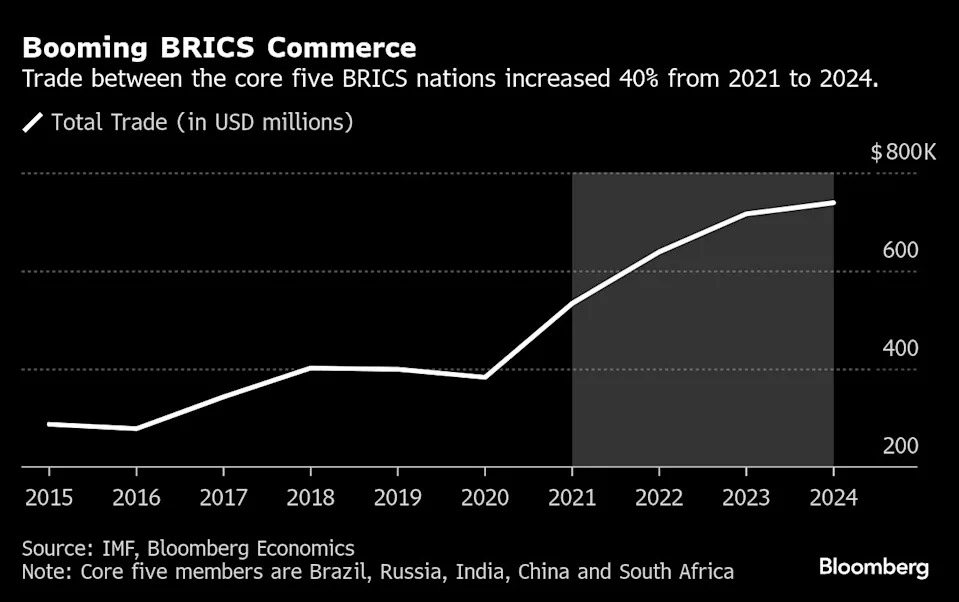
BRICS aspires to occupy ground vacated by US under Trump
Key Points
- BRICS Unity Against Tariffs: BRICS leaders, meeting in Rio de Janeiro, are set to issue a joint statement criticizing unilateral protectionist measures and tariff increases, implicitly targeting US President Donald Trump’s trade policies.**
- Defending Multilateralism: As Trump pursues an "America First" agenda, BRICS positions itself as a defender of free trade and multilateralism, seeking to fill the void left by the US in global economic leadership.**
- Expansion and Challenges: The group’s recent expansion to include nations like Egypt and Iran boosts its global representation (40% of GDP, half the world’s population), but internal divisions and lack of shared values hinder coherence.**
- Alternative Systems: Trump’s tariff threats, including potential 100% levies for ditching the dollar, have spurred BRICS interest in local payment systems and alternative trade mechanisms.**
- Climate and Geopolitical Focus: Discussions at the summit include climate finance initiatives, while geopolitical tensions, such as differing stances on war references, reveal ongoing fractures within the bloc.**
Summary
The BRICS summit in Rio de Janeiro, hosted by Brazilian President Luiz Inacio Lula da Silva, highlights the group’s renewed purpose amid US President Donald Trump’s tariff policies. Leaders from Brazil, Russia, India, China, and South Africa, along with newer members like Egypt and Iran, are poised to condemn protectionist measures in a joint statement, signaling opposition to Trump’s trade agenda without directly naming the US. As Trump alienates allies with his "America First" stance, BRICS aims to champion multilateralism and free trade, despite longstanding internal divisions and a lack of shared values. The bloc’s expansion enhances its global economic weight, representing 40% of GDP, but coherence remains elusive. Trump’s threats, including potential 100% levies for abandoning the dollar, have paradoxically encouraged BRICS to explore alternative payment systems and boost intra-bloc trade, which grew 40% to $740 billion between 2021 and 2024. Climate finance also emerges as a key topic, with China positioning itself as a reliable partner. However, absences by leaders like Xi Jinping and Vladimir Putin, alongside geopolitical tensions and rivalries (notably between China and India), underscore the challenges BRICS faces in becoming a unified global force. While Trump’s policies offer a rallying point, the group’s geopolitical influence is expected to grow only gradually, tied to its economic heft and potential further expansion.
yahoo
July 5, 2025
Stocks


